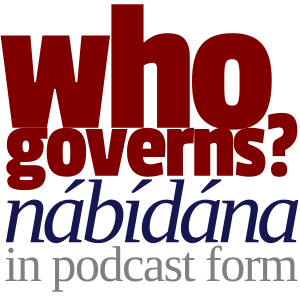Some observations on the most interesting election since Sophia of Hanover.
We didn’t call the election this way, no matter how many ‘prescient after the fact’ comments you read in media and online. People, like me, who put a small amount of money on a tory majority were doing it because some of us like to put our money where our heart is. Some of us aren’t natural gamblers.
That having been said, on Thursday 29th April, I am pleased that in the Conservatives Online Facebook group, I said:
“Like many in this group, I feel there’s a tide turning – people are beginning to see the risks and dangers associated with a Lab-SNP coalition and to see the road down which David Cameron wants to take the UK. Labour supporters in Scotland must be livid with a leader in London prepared to sacrifice Scottish Labour for a mess of potage.
I think we can do this. I think we can push to a majority in England, form a government and develop a respectful working relationship with the SNP in the interests of everyone in the UK.
Faugh a Ballagh!”
Jim Messina, for his part, had the confidence in the strategy to call a majority a few weeks ago. He had more than a small bet riding on the result – his reputation in storming elections is further improved.
‘Now that’s a fucking exit poll’
Anyway, we all clustered round TVs at 10pm to see what the BBC exit poll would come up with. When it predicted Conservatives as largest party, we all heaved a collective sigh of relief, because, the previous week’s polls had told us, that meant we would have the first roll of the dice in the messy game of cobbling together a coalition with the religious fundamentalist nutters in the DUP and the Lib Dems, whom we hoped would hang on to at least 20 of their seats to shoehorn David Cameron into negotiations.
When they clarified that the poll showed a conservative party with 316 seats, after the first picosecond of elation, everyone dismissed it with a sigh and prepared to see the first returns.
When Sunderland’s seats began to report in, half the twitterati opined that an increased vote for Miliband pointed to a surge for Labour – but other, calmer heads, asked only one thing: does it fit in with the exit poll premise?
Of course, in the restrospect that only hundreds of thousands of pieces of data can give us, we know it fit exactly. Miliband consolidated the left vote, stacked up majorities in red constituencies and abandoned the middle ground, which shat itself about marauding Scots and Russell Brand and voted Conservative. End of post.
LOL j/k.
Who voted Labour?
Electoral politics seems to me to come down to two things; people reflect themselves, their fears and aspirations in the ballot box, and they decide on the sort of leadership they want for the future.
It’s crass to argue, as some on the left seem to want to, that people voted Tory because of some meanness or some perfidiousness on the part of the English electorate. People voted for economic growth, more jobs, investment and the possibility that in five years, they might be better off and live in a safer, more contented society than they do today. They took the view, on the basis of track record and political pledges, that the Conservative approach was more likely to deliver those things. They bought the argument that the type of ‘fairness’ propounded by the left, was less likely to improve the society than the type of ‘fairness’ proposed by Conservatives.
The reality of elections is that very few seats change hands; most people think of themselves as ‘belonging’ in a very weak sense to a party, and those who float only exceed the numbers of belongers in times of big change, political boredom, or in seats where no party or candidate has made a recent impression. Thus, there are tory seats and there are labour seats, and there are some really hard core Lib Dem seats, where whole wards consider themselves one or t’other.
Northern Ireland
To my shame (sorta) I don’t pay any attention to Northern Ireland politics, because they’re depressing – or they were until Friday morning. Ulster Unionists are back – and they displaced the singing fundamentalist Rev. William McCrea (in effect regaining the seat) in Antrim South with the thoroughly likeable Danny Kinahan – which is a great achievement. Completing the revival of the party was Tom Elliott’s eviction of Sinn Féin’s absentee former MP Michelle Gildernew in Fermanagh and South Tyrone. Other than that, disappointment in South Belfast as a good old-fashioned unionist circular firing-squad saw the execrable Alastair McDonnell keep his seat. There’s a quip about Danny de Burgh Kinahan wooing back the ‘Lady in Red’ Sylvia Hermon back to the Ulster Unionists somewhere.
Wales
Wales is often thought of as Labour through and through, but the principality is not blind in its voting patterns; people there weren’t convinced, just like in England, that Ed Miliband could deliver on the programme they had planned; they were even less convinced that it was desirable; Labour’s much vaunted love for the NHS in England is as wasted a flyer in Wales as it is in Staffordshire.
Scotland
Scotland has, of course, had a time of very great political change; the referendum did some marvellous things for the SNP, and it’s not hard to see how the setup there made a nationalist surge all but inevitable.
In a referendum, a simple binary decision pits YES against NO. The only way to fight Thursday’s election in the light of such political activation, would have been to pit single ‘unionist’ candidates against SNP – but in a divided field, there was absolutely no doubt that the SNP would do all they needed to do – get more votes in the constituency than any of the individual candidates opposed to nationalism.
They walked into the election with 35% support all but guaranteed in every seat, with the contact details of tens of thousands of activated and excited voters who understood clearly that one big push would turn Scotland yellow. It was, in some ways, one of the simplest political operations in modern political history, but they did it exceptionally well. They present a formidable force in Scotland, which will continue to be unbeatable without unionist consolidation in the country.



